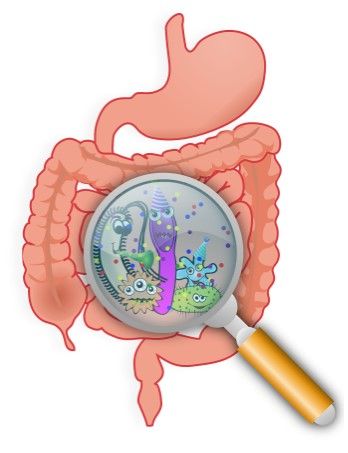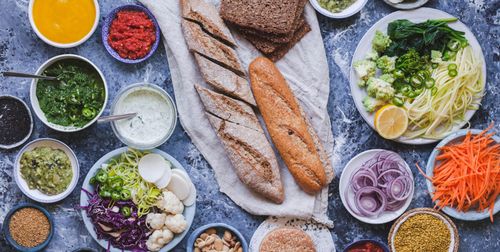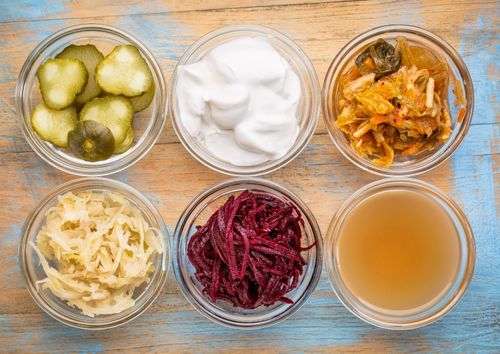A gut feeling: What is the microbiome and why is it important?
by Guest Author,
- October 12, 2021
- Leave a comment
Kahlea Horton-French, student dietitian at Curtin University (2020)
While you’ll often see it reported that there are 10 times more microbes living on and in us (particularly in the digestive tract) than there are cells in the human body, more recent evidence suggests it’s actually more of a one-to-one ratio – so we’re about equal parts human and microbe!
The gut microbiome refers to the trillions of microorganisms that live in your digestive tract. The main type of microorganism in your gut is bacteria. Each person has around 160 different species of bacteria living in their digestive tract, making up a weighty 2kg in total!
Your gut is specific to you. Your partner, your work colleague and your cousin overseas all have their own specific combination of gut bacteria, which is different to that of your own.

How a healthy gut microbiome supports health
- Defends our bodies against the ‘bad’ bacteria and viruses that can make us sick
- Reduces inflammation
- Produces essential vitamins and other nutrients
- There is a connection between your gut and brain known as the gut-brain axis. While research in this area is still emerging, early evidence suggests that if your gut isn’t happy, then your mood and brain function may be negatively impacted. Read our blog on food and mood.
Want to delve further into the science? Click here.
What makes a healthy vs unhealthy gut?
It is difficult to say exactly what a healthy gut looks like because the research in this area is still fairly new. What we do know is that a healthy gut has a good variety of species of bacteria. An unhealthy gut, known as dysbiosis, also has more of the bad bacteria and less of the good.
So what can you do to for a healthy gut? See the tips below!
Four ways you can improve your gut health
1. Eat a wide variety of fibre-rich plant foods
Eating a wide variety of fruit, vegetables, wholegrains, beans, lentils, nuts and seeds supports good gut health. These plant foods are a source of fibre, also called prebiotics, which your gut bacteria feed on. When it comes to fibre, your gut bugs love diversity – it puts them in a good position to fight off infection and inflammation. Different plant foods contain different types of fibre, so aim to get a variety of different plant foods over your day. For more tips check out our blog on 6 ways to get more plant foods into your day.

2. Include probiotic foods in your diet
Probiotics are another name for the live microorganisms consumed in foods and supplements that can take up residence in our gut and help us to stay healthy. Probiotics can be taken as supplements, but are also naturally found in fermented foods such as yoghurt, kefir, kimchi and sauerkraut. Try adding probiotic foods regularly because as soon as you stop, those helpful bacteria won’t stay long in your gut! For more information read our blog on probiotics.

3. Eat less junk foods
Junk foods, like fast food, sugary drinks and meat pies, are loaded with sugar, salt, saturated and trans fat while being low in fibre-rich foods like fruit, vegetables and wholegrains. These foods aren’t enjoyed by your gut bugs and they don’t provide them with a healthy source of fuel.
4. Move your body, get enough sleep and find ways to fight stress
Research suggests that regular aerobic exercise provides benefits to the gut microbiome. Gut bugs also like a good rest; having a good sleeping pattern may improve gut health. As for managing stress, when your head is stressed your gut is likely to be as well, so finding ways to unwind may also be important. Check out our blog on practicing mindfulness to see how.








